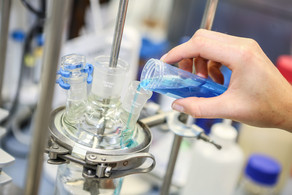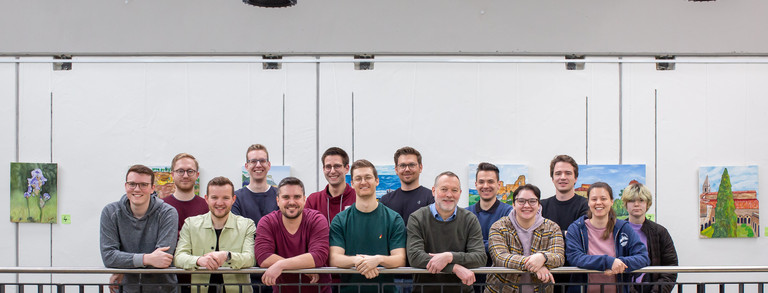M. Sc. Arno Windisch
Focus of work
- Hydroformylation/Aldehyde hydrogenation
- Multiphase homogeneous catalysis
- Upscaling of novel processes to a continuous miniplant scale
- Capillary flow reactors
Follow the link to moodle to get further information about current student research projects:
Curriculum Vitae
Arno Windisch studied chemical engineering at TU Dortmund since October 2015 and completed his bachelor's degree in December 2019 with the thesis "Accessing New Products via the Synthesis Tool Carboxytelomerization - Utilizing Highly Reactive Anhydride Intermediates" at the chair of Industrial Chemistry. Afterwards he continued with his master studies in chemical engineering, during which he spent a semester abroad through ERASMUS at Lund University in Sweden. He completed his Master thesis, titled “Investigation of Multipurpose Experiments at the example of Homogeneously Catalyzed Hydroaminomethylation on a Continuous Miniplant Scale” in September 2022 at the chair of industrial chemistry with Prof. Vogt. Since June 2023, he is working as a research associate at the laboratory of Industrial Chemistry.
Research Topic
Homogeneous transition metal catalysts offer several advantages over their heterogeneous counterparts, including high activity and selectivity, even under relatively mild operating conditions. Despite these strengths, most industrial processes rely on heterogeneous catalysis due to the simpler and more cost-effective separation of products from the catalyst. A notable example is the hydrogenation of aldehydes, which is typically catalyzed heterogeneously, even though the aldehydes themselves are often produced through homogeneous catalysis.

Integrating these two reaction steps into a single tandem catalytic process presents a sustainable and efficient route to alcohol production using a single catalyst. However, a significant challenge lies in the fact that the two steps require distinct reaction conditions to proceed efficiently. Capillary flow reactors provide a practical solution for implementing these varying conditions. For instance, in the reductive hydroformylation process, the carbon monoxide necessary for hydroformylation inhibits the subsequent hydrogenation step.

By employing modular setups with intermediate CO removal, the tandem reaction was successfully implemented, though further optimization is still needed. Moreover, this concept has the potential to be extended to other sequential reactions, paving the way for more efficient catalytic processes in the future.
Publications & Conferences
-
Windisch, A. M., Pey, P., Seidensticker, T., (2025) "CO-Degassing in a Segmented Slug Flow Reactor Enables Continuous Linear Alcohol Formation from Alkenes using a single, non-assisted Rh-catalyst by Switching Between Hydroformylation and Aldehyde Reduction" ChemRxiv, DOI: 10.26434/chemrxiv-2025-r5jz4
-
Riemer, T.B., Windisch, A. M., Vogt, D., Seidensticker, T., (2024) "Robust and flexible continuous operation of homogeneous catalysis in thermomorphic multiphase systems − On-stream switching of substrates and reactions in amine production" Chem. Eng. J. (497) 154643, DOI: 10.1016/j.cej.2024.154643
- Kampwerth, A., Riemer, T. B., Pöttker-Menke, J., Oppenberg, J., Windisch, A. M., Vogt, D., Seidensticker, T., (2024) "Hydroaminomethylation of methyl 10-undecenoate with integrated catalyst recycling via a thermomorphic multiphase system for the continuous production of renewable amines" RSC Sustain., 2, 1797-1808, DOI: 10.1039/D4SU00109E





